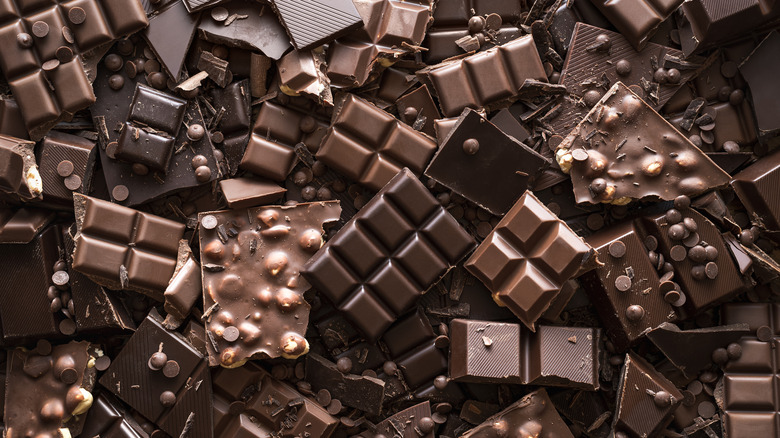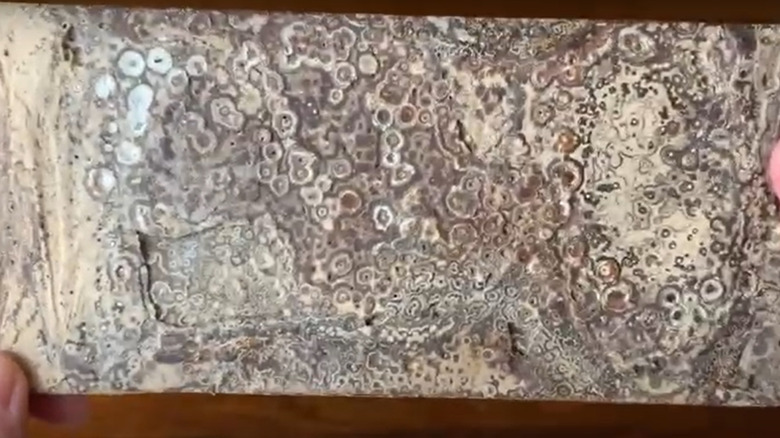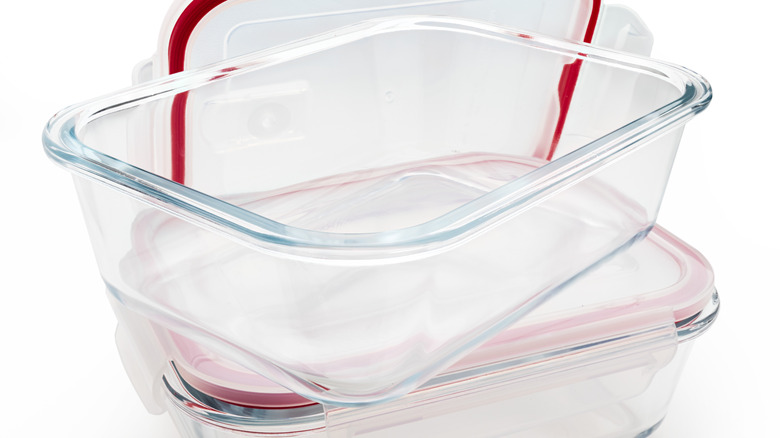The Major Catch To Consider When Freezing Chocolate
When storing chocolate, do you prefer room-temperature chocolate from your pantry, cool, hard chocolate from your fridge, or rock-solid chocolate from your freezer? Whether you keep chocolate on hand for baking or simply enjoy snacking on it on the regular, you probably have a tried-and-true storage method for your chocolate bars or blocks.
While there are both advantages and disadvantages to each storage method, storing your chocolate in the refrigerator or freezer can help bring out its flavors and prevent it from turning into a melty mess when your "room temperature" kitchen is a little bit hotter than it should be. Freezing chocolate may seem like the perfect solution to your chocolate storage woes, but according to EatingWell, there's a catch to this method that might require taking a few extra precautions. Once you taste the elevated flavors of your favorite bar chocolate in your go-to recipes, though, freezing your chocolate will be well worth your time.
The one roadblock to freezing chocolate
If you've ever had chocolate straight out of the fridge or freezer, then you probably know just how delicious it is, and if you bake, you've likely added chilled chocolate to your baked goods to take their flavors up a notch. But if you freeze chocolate (or even refrigerate it), you should know an essential catch before you stockpile all of it in the chilliest parts of your kitchen.
Chocolate shouldn't be exposed to moisture. When it is, the damp air affects the structure and texture of the chocolate. Essentially, moisture can dissolve the sugar on the surface of chocolate. But, of course, moisture eventually evaporates — even the moisture on a chocolate bar. According to TCHO, when the moisture evaporates, the sugar solidifies once again, but this time, the sugar takes the form of crystals, so you'll find dried-up sugar on your chocolate if you place the bars in the freezer. This is called chocolate bloom, and while it's still safe to eat chocolate that has "bloomed," it can negatively affect the candy's texture (via Hotel Chocolat).
How to prevent chocolate's moisture exposure in the freezer
Fortunately, there's a simple way to resolve this texture issue. Before you place chocolate bars or blocks in the freezer, consider ways to prevent them from being exposed to moisture.
One of the most straightforward strategies is to place your chocolate in an airtight container before freezing it. (We love an airtight kitchen hack, especially for chocolate.) Also, EatingWell advises carefully wrapping the chocolate bars before you freeze them to prevent moisture from seeping in. Once you decide to use chocolate in a recipe, thaw it thoroughly in your refrigerator. Then, let it sit at room temperature before adding it to your favorite dishes and desserts. You'll still have the taste and texture you crave, but you'll finally be rid of that pesky crystallized sugar from moisture exposure. Freezing chocolate is a good idea if you want it to have a more robust taste, but be careful and plan ahead — you don't want your chocolate to be exposed to too much moisture.


